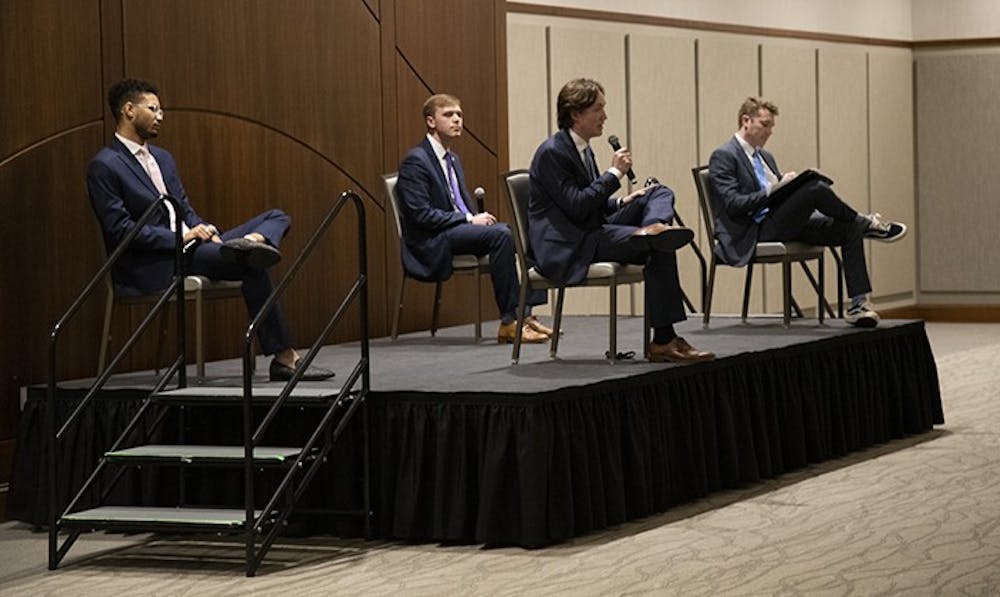USC’s Student Government is based on a fundamentally wrong vision of campus politics. To understand why, we have to look at the assumption Student Government is based on: The idea students can work with the administration to make our campus a better place.
This assumption is the basis of Student Government’s structure. Unfortunately, this assumption is incorrect.
Student Government is essentially an extension of the administration itself — it gets all of its funding from the board of trustees, and the president of the university has a total veto of any Student Government bill.
If you’ve been paying attention to any of the news around campus, it should be clear the administration does not care one bit about what students, or their representatives in Student Government, want.
If university administration cared, then David Voros would have been fired years ago because of the sexual harassment lawsuits against him. If university administration cared, then the Wellness and Fitness Center and the library would have already been renamed after people who weren't horrible racists. If university administration cared, then we’d have more accessible mental health services on campus than the existing ones, which can be difficult to schedule and are limited to 10 free sessions per year.
Even if Student Government wanted to take action on these issues — and many of its members do — there’s very little they could actually do about them.
President Bob Caslen and his staff can ignore as many resolutions as the student senate passes because a bill on his desk has absolutely no impact on the operation of the university if he decides not to sign it.
Thankfully, just because Student Government is powerless, it doesn’t mean the student body is.
Unlike our elected officers, we have no obligation to be respectful and professional towards the administration, and we certainly don’t have to keep our political activity inside the bounds of Robert’s Rules of Order.
The student body’s power rests in the simple fact that the university does not function without its students. We have the power to force the administration’s hand.
Our fellow students at Columbia University are demonstrating this power as we speak. More than 1,100 of them are participating in a tuition strike in protest of the university’s high tuition and failure to address social justice issues on-campus.
The strike, organized by the Columbia University-Barnard College chapter of the Young Democratic Socialists of America, is already working. By refusing to pay their tuition for the spring semester, the student activists have already pushed their school to divest from fossil fuel companies.
This type of aggressive student activism isn’t limited to elite Ivy League universities. In fact, our own school has a history of student rebellion. On May 7, 1970, hundreds of student protestors demonstrated on the Horseshoe in response to the Kent State massacre that occurred a few days prior.
Over the next week, the protests would expand to address the Vietnam War and police abuse and racism on campus. Students’ anger boiled over, and, by the end of the week, protestors occupied Russell House, trashed the administration building, attacked National Guard soldiers and were tear-gassed. Dozens of students were arrested and suspended.
These protests' aggressiveness was not fueled by Student Government; it was fueled by students who were willing to take direct action. In fact, the USC Student Government stopped supporting the protests in 1970 as soon as the protestors moved into Russell House.
The problems that students face on campus — including high tuition, racism, sexual harassment and poor mental health — will not be solved by the goodwill of the university administration.
These issues on campus will only be solved if students are willing to take matters into their own hands and disrupt business as usual to the extent that the administration has no choice but to concede. Student Government can pass as many resolutions as it wants, but real campus politics will be going on outside the senate chamber.
Hopefully, the chamber's newest occupants will recognize this reality and will add their voices to the growing demands for real change.

